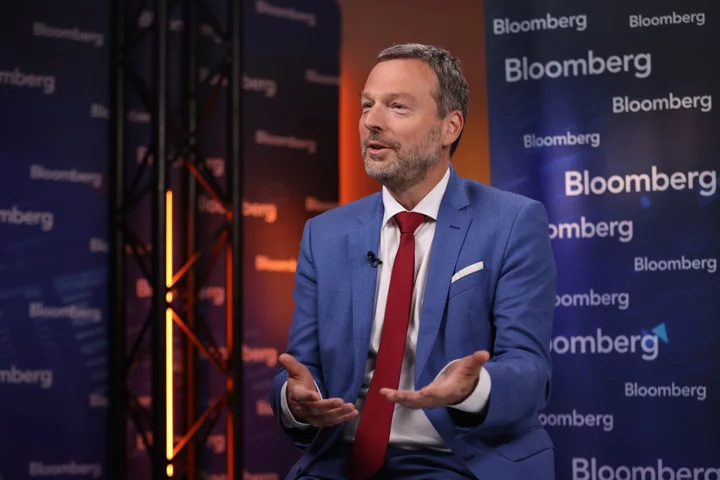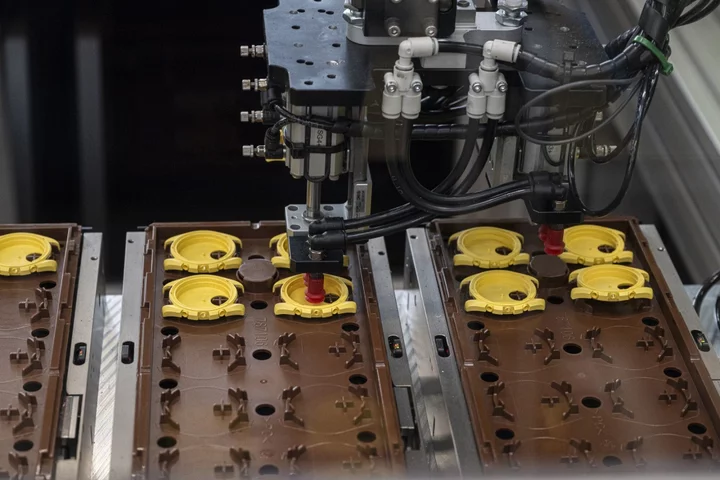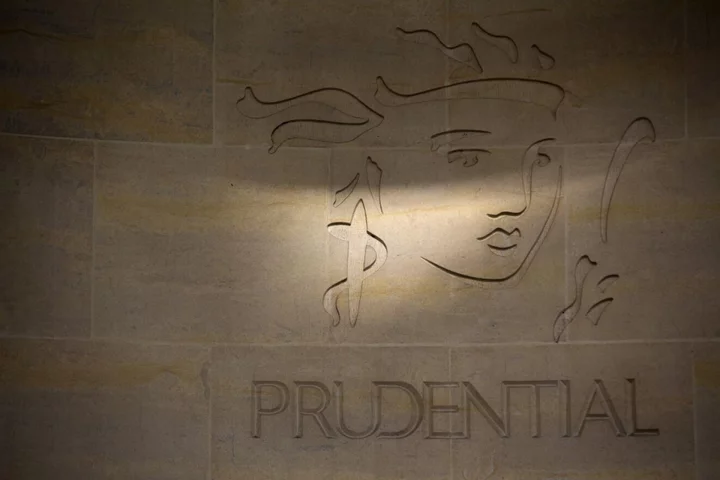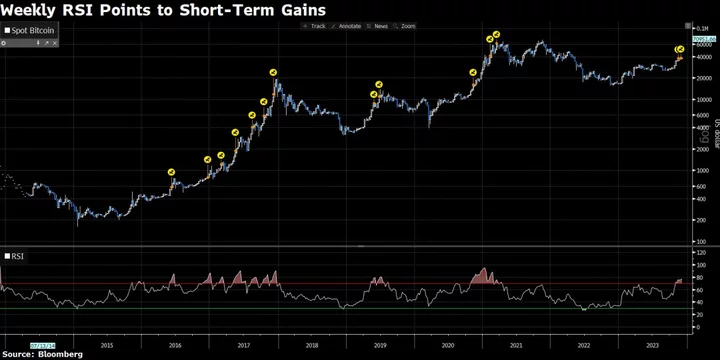The European Central Bank may have to raise borrowing costs again if investor bets on monetary loosening undermine the institution’s policy stance, Governing Council member Pierre Wunsch said.
Markets are taking an “optimistic” view by discounting the possibility of further hikes and expecting the first reduction of the ECB’s deposit rate from its current 4% level as soon as April, the Belgian central-bank chief said in an interview in Frankfurt.
“Is it a problem if everybody believes we’re going to cut?” he said. “Then we have a less restrictive monetary policy. And I’m not sure that then it’s going to be restrictive enough. So it increases the risk that you have to correct in the other direction.”
The ECB left interest rates on hold last month for the first time in its tightening cycle, while warning that they have to stay there for a “sufficient period” to return inflation to the 2% goal. Some officials have indicated that this rules out a move in the first half of next year.
Market bets on prospective cuts in borrowing costs follow data that showed the region is struggling to gain momentum and drastically slowing inflation. But officials are still concerned about wage increases, and that the conflict in the Middle East could send energy prices higher again.
“I think markets are relatively optimistic today that they exclude the possibility that we have to do more or that we have to remain at 4% for longer,” said Wunsch, who is among the more hawkish Governing Council members.
The ECB’s latest economic forecasts see a drop to 2% in the second half of 2025. Inflation will probably tick up again in the meantime because of volatility in energy prices. The removal of government aid to cope with high living costs also means that progress from here will be slower.
“If we arrive at the conclusion that inflation is not going down fast enough, we’ll communicate it through our projection and through our communication,” according to Wunsch. “If the markets don’t infer from this that it’ll be high for longer, then we’ll have to use our rate instruments and hike to get where we want to go.”
The remarks did little to change pricing in money markets. Traders are still betting the ECB is done raising rates and may start loosening policy as early as April.
Thanks to “recent marginal positive surprises on inflation” the Belgian official doesn’t envisage any changes in borrowing costs at the next two policy meetings.
“That moves the question to the next uncertainty: are we going to see some inflation resistance at some point at 3% or something like that because of wages?,” he said. “That is something we’re not going to know by December or January.”
--With assistance from Christoph Rauwald, Ben Sills, Nicholas Comfort and Constantine Courcoulas.
(Updates with markets in ninth paragraph)









